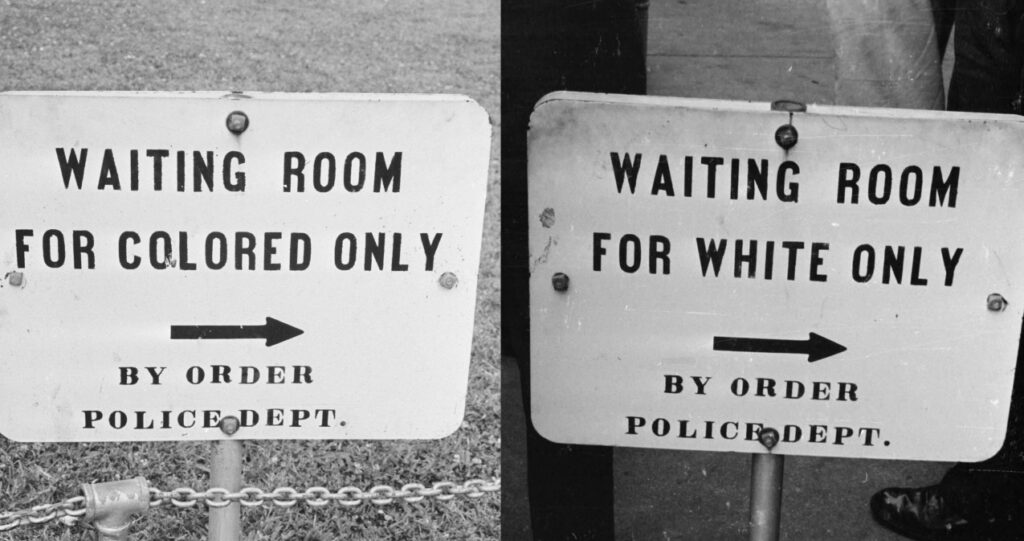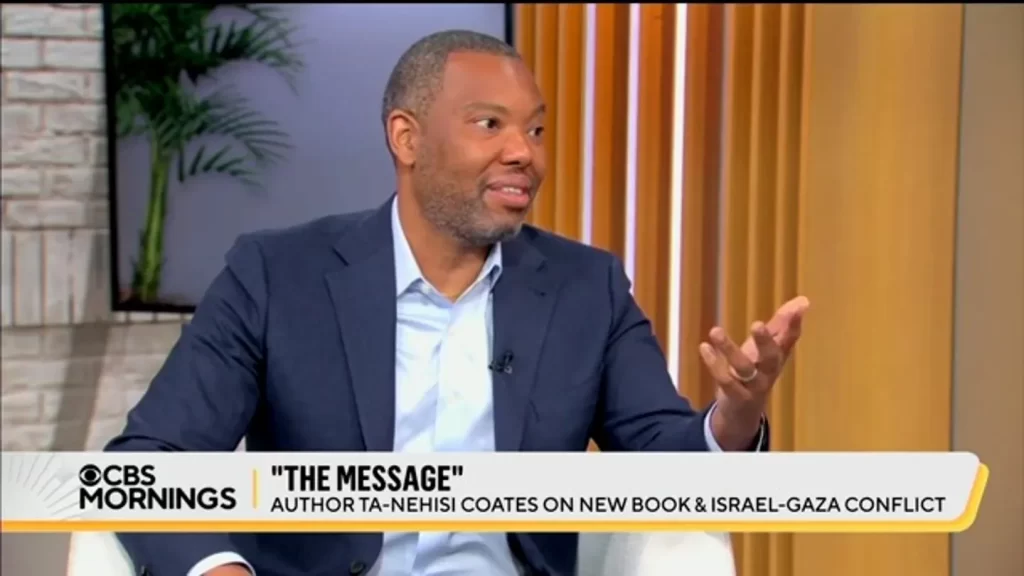The recent interview between Ta-Nehisi Coates and CBS Mornings anchor Tony Dokoupil has sparked an essential conversation about whether Black voices have the right to speak out on issues of global injustice, particularly in Palestine. For many Black Americans, witnessing oppression abroad feels deeply personal, resonating with the painful historical struggles we’ve endured in our own country. Coates’ reflections on Palestine—and his choice to share the voices of Palestinians—echo a long-standing tradition of solidarity between the Black American experience and the Palestinian fight for justice.
The Black struggle in America and the Palestinian struggle have a shared history. In the aftermath of the 1967 Arab-Israeli War, Black Power and Civil Rights activists saw their own battles for freedom reflected in the Palestinian cause. Leaders like Malcolm X, Martin Luther King Jr., Muhammad Ali, and Jesse Jackson expressed empathy for Palestinians, identifying with fellow people of color facing colonialism, systemic racism, and dehumanization. They recognized a universal fight for human rights and dignity that transcends borders and binds oppressed peoples together.
During the interview, when Coates described how his Palestinian tour guide couldn’t access certain places or even drive down certain streets due to his ethnicity, I was immediately reminded of my own family’s history. My parents and grandparents faced the same daily humiliations under Jim Crow and apartheid-like conditions in the United States. The trauma of being denied basic freedoms because of one’s race is all too familiar to Black Americans. Yet, when Coates shared this powerful moment, Dokoupil’s response—“Why is that?”—was a stark reminder of how our experiences and the parallels between Black and Palestinian oppression are often dismissed or ignored. Such a response seemed to trivialize a painful reality that has spanned over five decades, failing to acknowledge the shared history of suffering under white supremacy and state-sanctioned discrimination.

What struck me most in watching this exchange, however, was the silence of Gayle King and Nate Burleson, two Black anchors who sat quietly as Coates faced an intense and at times dismissive critique. This silence highlighted a hard reality we, as Black people, must confront: we have grown too comfortable in white institutions, hesitant to challenge racism or injustice when it disrupts the narratives of those institutions—especially when they are the ones writing our paychecks. Coates, a respected journalist, faced an attack on his character, a stark reminder of the consequences we face when we lack independent Black institutions, particularly in media. It also reflects the unfortunate failure of some Black leaders and pastors to honor the legacy of the Civil Rights and Black Power movements, movements that once championed speaking truth to power without fear or favor.
As I write this on October 7, I extend my deepest sympathies and prayers to the families of the hostages and to the countless innocent lives lost in this conflict. I denounce Hamas and all organizations that engage in acts of terror, including those within the Israeli government, that perpetuate violence. We must stand firm in condemning any group that uses terror as a tool, regardless of who they claim to represent, as these acts inevitably harm innocent civilians—especially women and children, who bear the brunt of this violence. Reports indicate that over 30,000 Palestinians were killed, with over 70 percent of women and children have lost their lives in this prolonged conflict. This staggering and heartbreaking tragedy should weigh heavily on us all.
As a follower of the scriptures, I am compelled to speak the truth and demand justice for all the innocent lives impacted, Palestinian and Israeli. Ecclesiastes 3:17 reminds us, “God will bring into judgment both the righteous and the wicked, for there will be a time for every activity, a time to judge every deed.”
It is our duty to uphold this call for justice, to ensure that we do not allow the suffering of the vulnerable to continue unchallenged. We must act with compassion and a commitment to truth, advocating for a peaceful and just resolution that honors the dignity and sanctity of every human life.
In defending his book, Coates made a simple yet profound point: mainstream American media often amplifies Israel’s perspective, frequently sidelining the voices and lived experiences of Palestinians. He also observed that there are very few, if any, Palestinian or Arab newscasters in major American media—a noticeable absence that reflects a deeper issue. He’s absolutely correct: representation matters, and it brings diverse perspectives that are shaped by unique lived experiences. Coates’ book does not attempt to resolve the complex and enduring Israeli-Palestinian conflict; rather, it reflects his own observations and the stories of the people he encountered. By sharing these narratives, Coates does not offer an extremist view but instead strives to bring balance to a conversation that American media often frames one-sidedly.

Screenshot of CBS Morning show
Through his work, Coates challenges us to recognize the humanity in those whose stories we rarely hear, inviting us to broaden our understanding of a conflict that impacts countless lives. His insights encourage readers to engage with perspectives that are often marginalized, pushing us to see the complexities and pain in a struggle that, like all human conflicts, is far from black and white.
For Black Americans, Coates’ stance is a call for solidarity with other oppressed peoples. Our own history of slavery, Jim Crow laws, and systemic discrimination provides a unique understanding of what it means to fight for freedom and dignity. His views are not anti-Israel but anti-discrimination in all its forms. His criticism is not aimed at a specific state but at any system built on ethnic supremacy. This perspective reflects Coates’ lived experiences as a Black man in America, underscoring a commitment to justice that transcends borders.
The reality is that, while we may see Black faces in prominent positions, we still lack the independent power structures necessary to stand up for justice, free from the constraints of institutions that prioritize profit over truth. We have a duty to rebuild Black-led institutions that place community and truth above convenience. Let us embrace the radical legacy of our forebears in the Civil Rights and Black Power movements, who taught us that our role is not just to represent our people but to fight for our values.
In closing, I urge everyone to support Ta-Nehisi Coates’ work by buying his new book, The Message. It’s available on Amazon and other major retailers. Coates amplifies stories that challenge us to confront injustice and to stand in solidarity with those denied their freedom. Whether in Ferguson or Gaza, Birmingham or Bethlehem, the call for justice is universal. It is our responsibility to amplify it—loudly, and without apology.










